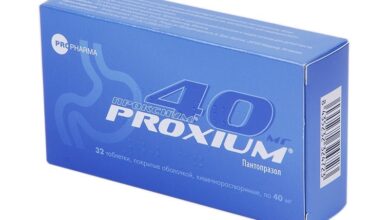Is Ivermectin a Covid treatment?

The COVID-19 pandemic, caused by the novel coronavirus SARS-CoV-2, has spurred an urgent search for effective treatments. Amidst the multitude of drugs investigated for repurposing, one that garnered significant attention is Ivermectin. Initially known for its effectiveness against parasitic infections, particularly in veterinary medicine, Ivermectin has emerged as a potential candidate for COVID-19 treatment. This comprehensive review aims to critically evaluate the evidence surrounding Ivermectin’s efficacy, safety, and controversies in treating COVID-19.
Table of Contents
ToggleMechanism of Action
Ivermectin Buy Online exerts its antiviral effects by targeting multiple pathways. Primarily, it inhibits the importin α/β1 nuclear transport proteins, thereby impeding viral replication. Additionally, it has been reported to suppress the host’s inflammatory response and modulate the immune system, potentially attenuating the cytokine storm associated with severe COVID-19.
Clinical Evidence
Numerous studies have investigated the efficacy of Ivermectin in treating COVID-19. Some early in vitro studies showed promising results, demonstrating its ability to inhibit viral replication. However, translating these findings into clinical practice requires robust evidence from randomized controlled trials (RCTs).
Several RCTs and observational studies have been conducted to assess Ivermectin’s efficacy in COVID-19 patients. While some studies reported positive outcomes, including faster viral clearance and reduced mortality rates, others found no significant benefit. Discrepancies in study design, patient characteristics, dosage regimens, and outcome measures contribute to the conflicting results.
Meta-analyses and systematic reviews attempted to consolidate the available evidence. While some meta-analyses suggested a potential benefit of Ivermectin in reducing mortality and improving clinical outcomes, others raised concerns about methodological limitations and heterogeneity among studies.
Controversies and Challenges
Despite the growing interest in Ivermectin, controversies abound. The World Health Organization (WHO), the United States Food and Drug Administration (FDA), and other regulatory agencies have not endorsed Ivermectin for COVID-19 treatment due to insufficient evidence. They emphasize the importance of rigorous clinical trials to establish efficacy and safety before widespread adoption.
Moreover, misinformation surrounding Ivermectin has proliferated, leading to self-medication, overdose, and adverse effects. Health authorities have issued warnings against the indiscriminate use of Ivermectin outside approved indications, emphasizing the need for evidence-based medicine.
Safety Profile
Where To Buy Ivermectin is generally well-tolerated when used at approved doses for parasitic infections. However, concerns arise when considering its off-label use in COVID-19 patients. High doses or prolonged administration may lead to adverse effects, including nausea, vomiting, diarrhea, and neurological manifestations such as dizziness and confusion.
Furthermore, drug interactions and contraindications must be carefully considered, especially in patients with comorbidities or concomitant medications. Clinicians must weigh the potential benefits against the risks when prescribing Ivermectin off-label for COVID-19.
Future Directions
The quest for effective COVID-19 treatments continues, with ongoing research focusing on repurposed drugs like Ivermectin. Well-designed RCTs with larger sample sizes, standardized protocols, and longer follow-up periods are needed to elucidate Ivermectin’s role in COVID-19 management conclusively.
Collaborative efforts among researchers, clinicians, regulatory agencies, and policymakers are essential to facilitate evidence-based decision-making. Open communication and dissemination of findings can mitigate misinformation and ensure public trust in scientific advancements.
Conclusion
The question of whether Ivermectin is a viable treatment for COVID-19 remains unresolved. While some studies suggest potential benefits, the evidence is inconclusive and subject to debate. Rigorous clinical trials are warranted to clarify Ivermectin’s efficacy, safety, and optimal dosing regimens in COVID-19 patients.
In the interim, clinicians should adhere to established guidelines and prioritize treatments with proven efficacy, such as vaccines and antiviral therapies. Prudent use of Ivermectin, guided by emerging evidence and clinical judgment, may have a role in specific cases but should not substitute for comprehensive management strategies.
Ultimately, the fight against COVID-19 requires a multifaceted approach encompassing vaccination, public health measures, and continued research into effective treatments. Ivermectin, while intriguing, must undergo rigorous scrutiny before it can be considered a standard of care for COVID-19.




